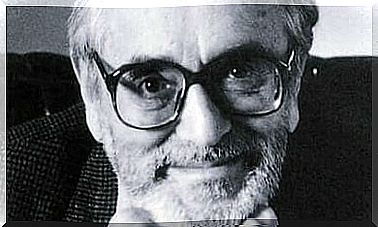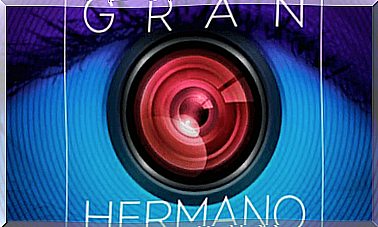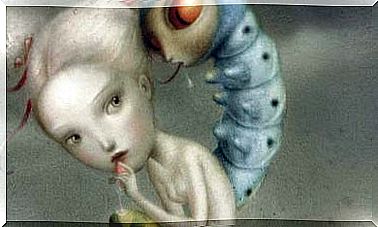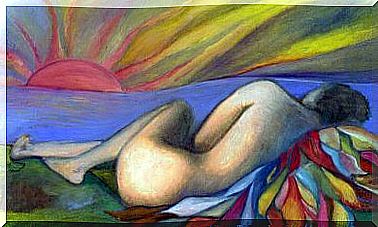What Is The Ego? The Explosive Voice That Drowns Humility
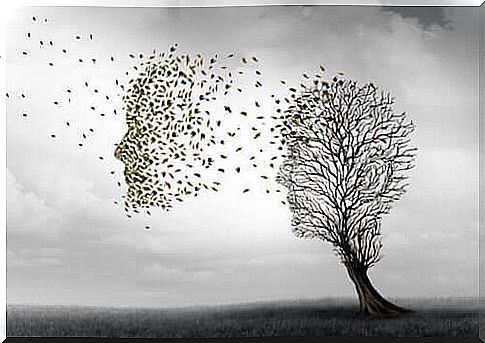
What is the ego? It is often defined as a social mask crafted with pride and abundant defense mechanisms. It is the pride of climbing a mountain so that the world can see us and not see the world with humility. Few psychological constructions in fact shelter so many definitions, so varied in their turn.
The concept of ego, which comes from Latin and means “I”, is one of the dimensions most used to talk about our personality. It is true that one of its most common meanings is that of pride, that of that self-image that seeks to impose a part of ourselves on others.
However, this is yet another mental construct, an identity that we have built with our internal factory of ideas, experiences, emotions and needs. Behind this self-constructed self, behind this exterior and artificial mask, hides our authentic being.
The problem arises when we are dominated, subordinated, and overly attached to that outer layer that we have chiseled out to survive in society. Let’s dive a little deeper into this topic.

5 keys to understanding the psychological construction of the ego
When we ask ourselves what the ego is, we must realize that we are confronted with one of the most complex constructions in psychology. In addition, in the psychological landscape there is an abundance of concepts which include the prefix “ego”. Selfishness, selfish spirit, egocentricity …
We can say that the school which developed this concept the most is undoubtedly that of psychodynamic theory and, more precisely, Sigmund Freud. However, it should be noted that Eastern philosophies have studied this question for centuries. So much so that anyone who immerses himself in Buddhism will find a spinal theme referring to the ego.
Philosophy and ego concept
Immanuel Kant explained to us in his book Critique of Judgment that the ego has collected all the constructions and mental representations made by the person. For his part, Jean Paul-Sartre designed this entity in a very similar way.
For the existentialist philosopher, the ego was not in our consciousness, it was not part of it. It was in fact something external, a self-constructed entity in its contact with society.
Sigmund Freud’s legacy
As we have pointed out, the current which has provided us with the most literature around the psychic instance of the ego is undoubtedly that of Sigmund Freud. The father of psychoanalysis stipulated that the human being is subject to three opposing forces which govern the way we act and respond to the world. These forces are the ego, the ego and the superego.
In this case, the ego is our representation of the world around us. It is also about that entity which tries to control our most basic impulses and instincts which come from the “it”. What you are doing, in essence, is trying to accommodate their wishes in a socially acceptable way.
The ego from spiritual, mystical and Buddhist perspectives
The current which has deepened this idea is Buddhism. This current differs considerably from existentialist philosophical perspectives and from psychodynamic psychology.
- According to Buddhism, the ego is a misconception of the self. It accompanies us from birth and our image, our identity, our nationality, our tastes, our passions, our culture, our education, our beliefs are integrated into it …
- However, all this stream of dimensions are nothing more than shallow constructions. These are processes that we adhere to and which, in reality, hide our authenticity because they are oriented outward, not inward.
- The ego is a false identity that brings suffering because it subordinates us to what we lack.
- One of the current figures who has approached the concept of the ego the most is Eckhart Tolle. The latter also emphasizes the notion of discomfort. People, according to him, live excessively attached to their thoughts, fears, needs, desires… As well as to all the inheritances of society which alienate us and create, little by little, a false self.

The ego from a psychological point of view: how to treat it?
The words of the Portuguese writer Fernando Pessoa are useful: “I look, and things exist. I think, and I alone exist ” . This psychological construct that we have built to function socially is still part of us. This means that it is possible to have a healthy ego.
The opposite is also possible. In this case, the person is living with a psychological entity that is desperately seeking to nourish itself from the outside, that is desperate for recognition and attention. Let’s see this in more detail.
The effects of a distorted ego
The distorted ego subjects us to the feeling of constant lack. It is a reflection of the mind obsessed because other people think of us. It is the gaze that assists the world with fear. Fear of failing, of not being loved, of not being like others expect or of having less than others.
Inner fear also often prompts us to develop defense mechanisms, such as pride and arrogance, masks that protect internal weakness. The sick ego is a reflection of low self-esteem, a weak identity that feels a lack.
The healthy ego that takes care of our psychological balance
Is there a healthy ego? Indeed, there is. The healthy ego allows us to have meaningful lives because it helps us be in harmony with who we are and what we show about ourselves. With what we need and what we give to ourselves, without being tied to the outside.
- With a healthy ego, we understand that we all deserve the respect of the world, that no one is better than the others. That satisfaction comes from tolerance and also from personal care.
- The balanced ego refers to good self-esteem. A bridge between the inside and the outside to recognize the value of life by giving it meaning.
- In doing so, finding internal meaning removes the feeling of external lack and this is where the real wellness revolution begins.
To conclude, beyond the complexity of the definition of this concept, it is advisable to recall something very simple. The ego is neither good nor bad, it is part of ourselves, a subjective and self-constructed entity that we must transform so that it promotes our happiness and not suffering. Let’s think about it.



